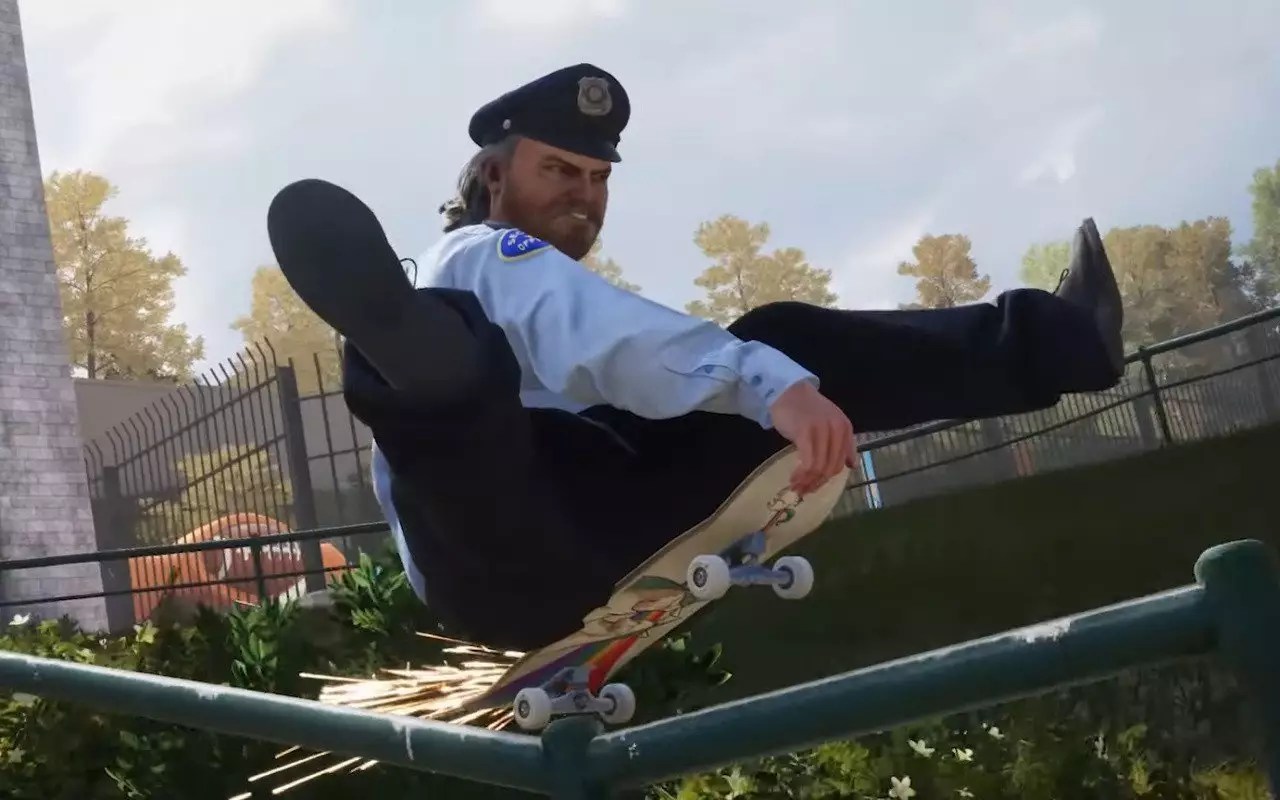In an era where remasters and reboots dominate the gaming landscape, the decision to revamp classic soundtracks has become a balancing act between honoring the original and embracing modern sensibilities. The recent release of Tony Hawk’s Pro Skater 3 + 4 exemplifies this tension vividly. While the games serve as a nostalgic pilgrimage to the golden days of skateboarding games, their conscious departure from the original soundtracks raises questions about authenticity versus innovation. Game developers, led by the legendary Tony Hawk himself, aim to introduce players to new musical landscapes, broadening their horizons beyond the familiar tracks that once defined the series.
This approach isn’t merely about music selection; it’s a deliberate strategy to make the game experience more immersive and culturally relevant. By shifting focus away from the original song roster, including classics like Alien Ant Farm’s ‘Wish,’ creators hope to cultivate a fresh yet familiar vibe that resonates with both veteran fans and new players. The underlying message? Video game soundtracks are no longer static but dynamic pathways for discovering new music, reflecting a changing industry that values diversity and continuous experimentation.
The Ethical Dilemma: Nostalgia versus Innovation
Choosing to omit beloved tracks can trigger a visceral disappointment among fans. The exclusion of ‘Wish’ by Alien Ant Farm—one of the iconic tracks from the original series—illustrates the risky trade-off involved. While developers justify these choices by citing the need to spotlight emerging artists, this move can sometimes feel like a betrayal of the very nostalgia that fans hold dear. It’s a paradox: by trying to keep the soundtrack “fresh,” the creators potentially alienate the core audience they are trying to engage.
From a critical standpoint, this decision hinges on whether the value of introducing new music outweighs the pain of losing familiar tunes. For many longtime fans, the soundtrack is inseparable from the gaming experience itself; it’s part of the collective memory of skateboarding culture in the early 2000s. Replacing or removing tracks risks eroding that cultural touchstone, reducing the game’s authenticity. However, Hawk’s perspective advocates for evolution—an acknowledgment that music tastes and the industry are constantly shifting. It becomes a question of loyalty to tradition versus the pursuit of innovation.
The Role of the Player and the Developer in Soundtrack Selection
Tony Hawk emphasizes that soundtrack choices involve multiple stakeholders, including the team behind the scenes, artists, and himself. While he candidly admits to influencing certain selections, he also recognizes the importance of broad-based input. This collaborative process reflects an industry trend where creative control is often shared or delegated, complicating the potential for pure artistic integrity.
His rationale suggests a desire to strike a middle ground: keep some familiar favorites, like songs by artists previously featured, but diversify the roster to include newer talents. This mirrors the strategy employed in recent titles such as Tony Hawk’s Pro Skater 1 + 2, which aimed to blend legacy and modernity. From a critical perspective, while this method can result in a more inclusive and varied soundtrack, it also risks diluting the identity of the series—transforming it from a signature cultural artifact into a generic compilation of contemporary tunes. There’s a certain tension here: the balance between respecting legacy and fostering musical discovery.
Implications for Cultural Authenticity and Gaming Identity
Soundtracks shape the cultural identity of gaming franchises, especially in series like Tony Hawk’s. A tracklist that reflects the music of its era contributes not only to the ambiance but also to the authenticity of the experience. Altering or replacing these tunes can be perceived as disrespectful to the roots of skateboarding culture, which was deeply enriched by the punk, metal, and alternative tracks that defined it.
On the other hand, modernizing the soundtrack can introduce the franchise to a new generation, ensuring its relevance in a rapidly changing cultural landscape. It promotes inclusivity and diversity, highlighting current artists from different parts of the world, such as Rayssa from Brazil or Chloe Covell. Yet, there’s a risk that excessive focus on “newness” shifts the game’s cultural authenticity, turning it into a fragmented mosaic rather than a coherent reflection of skateboarding’s musical evolution.
Ultimately, the decision reflects broader debates about the purpose of remaking classic games. Should they serve as relics frozen in time or as living, breathing entities capable of evolving with their audiences? While replaying the original tracks might offer a purist’s pleasure, embracing new music signifies a willingness to redefine legacy—an act that can either rejuvenate or dilute a franchise’s cultural significance.
—
In navigating the delicate terrain of soundtrack curation, developers walk a tightrope between honoring history and fostering growth. Tony Hawk’s approach exemplifies this challenge, demonstrating that while nostalgia remains a powerful force, the true strength of a franchise lies in its capacity to adapt. Still, one can’t help wonder if sacrificing some beloved tracks is a price worth paying for musical exploration—and whether this evolution ultimately enriches or diminishes the identity of one of gaming’s most iconic series.


Leave a Reply